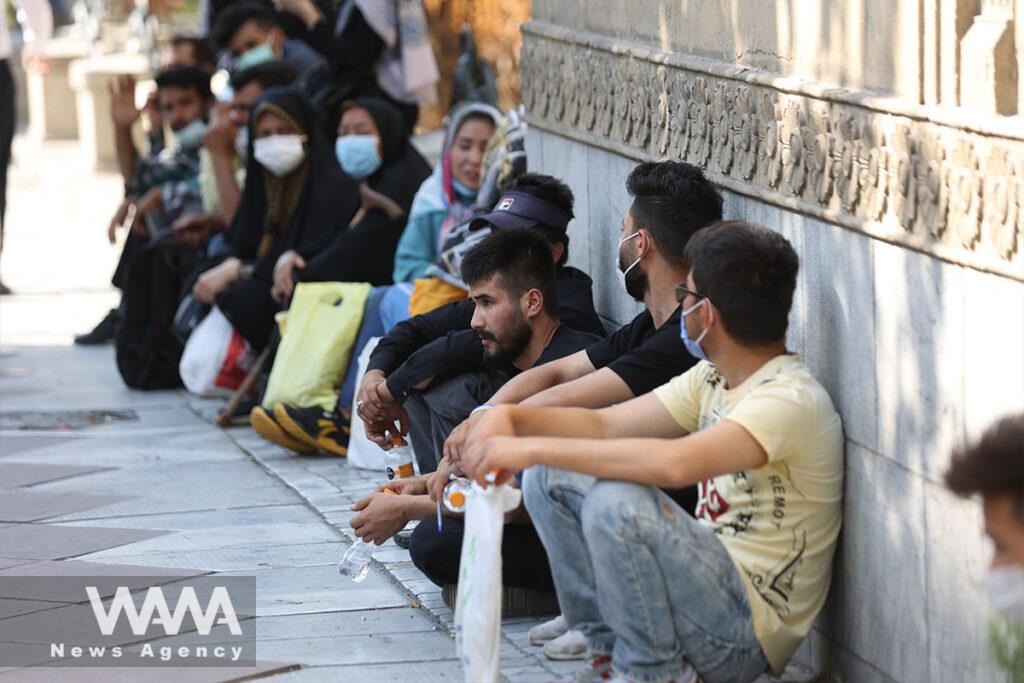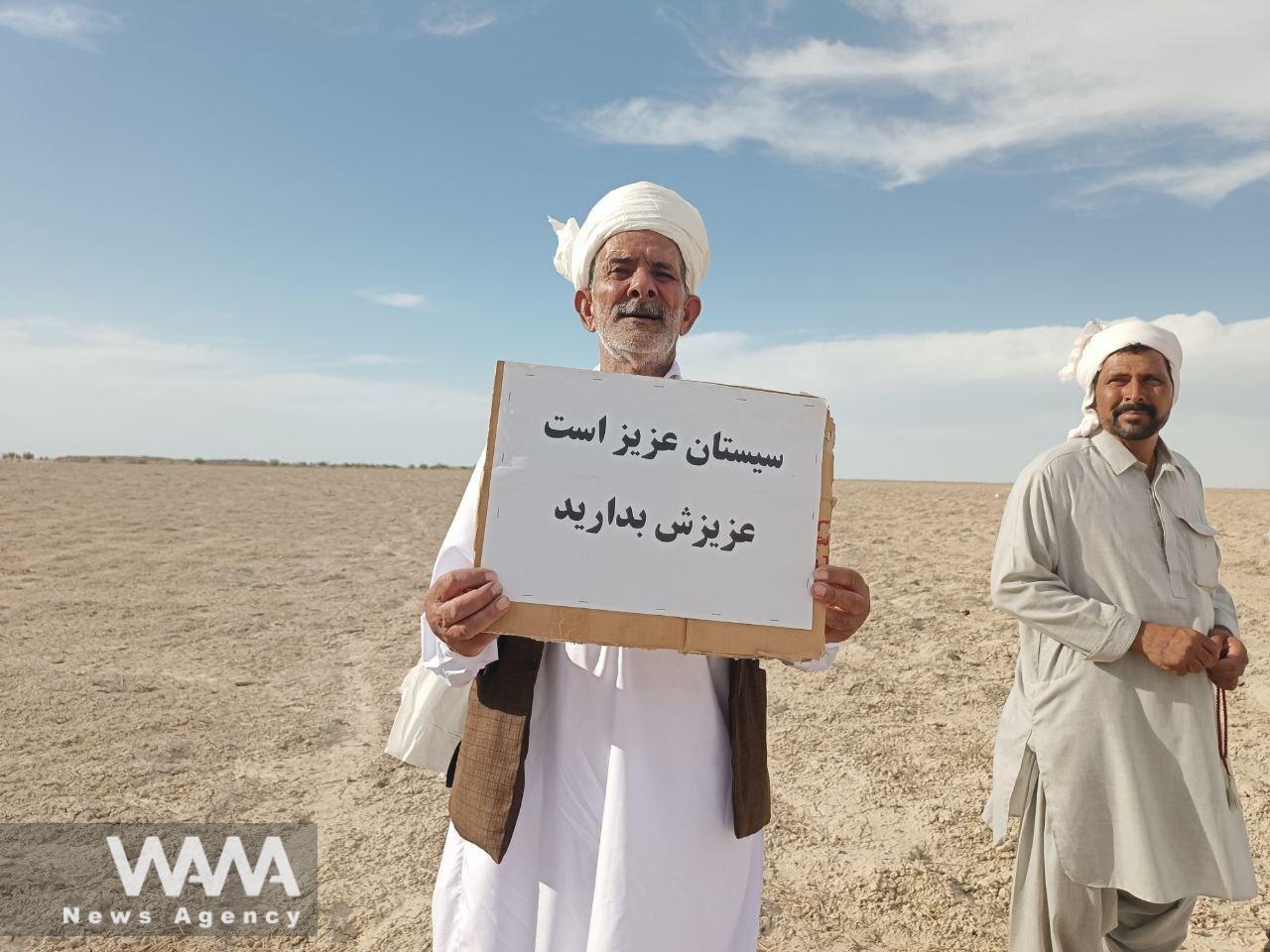Crisis of Afghan Immigration in Iran
WANA (Aug 31) – Afghan immigration in Iran has long been a topic of heated debate. Iran, sharing a 945-kilometer border with Afghanistan, has become a refuge for millions of Afghans fleeing decades of conflict and instability.
While some Iranians advocate for compassion and support for their neighbours, others raise concerns about this influx’s social, economic, and security implications. This complex issue requires a careful balance between humanitarian considerations and the realities faced by Iranian society.
A Neighborly Duty: Compassion in Times of Crisis
Many Iranians believe helping Afghan immigrants is a moral duty rooted in shared cultural and religious values. “We have a responsibility to help our neighbours,” says Dr Ali Khadem, a sociologist at Tehran University. “The Afghans are fleeing war and persecution. As Muslims and as neighbours, we should show compassion and provide refuge.”
This sentiment is echoed by others who see Iran’s role as a host country as part of its historical legacy. Iran has been a shelter for displaced people for decades, with many Afghan families having lived in Iran since the Soviet invasion of Afghanistan in the 1980s. According to the United Nations High Commissioner for Refugees (UNHCR), Iran hosts approximately 3.6 million Afghans, including both documented and undocumented individuals. This makes Iran one of the largest hosts of Afghan refugees in the world.
Security Concerns: A Growing Sense of Unease
However, not everyone shares this view. In recent years, security concerns have grown, fueled by reports of crime and terrorist activities involving Afghan nationals. The Iranian government has reported several incidents where Afghan immigrants were implicated in violent crimes, leading to fears about the potential threat to national security.
“Security is our top priority,” says Iran’s former Interior Minister, Ahmad Vahidi. “We cannot ignore the fact that some individuals among the Afghan population have been involved in criminal activities. This is why we are tightening our border controls and immigration policies.”
Conflicting Statistics: How Many Afghans Are in Iran?
Estimates of the Afghan population in Iran vary, with some figures suggesting as many as 4 million, including unregistered migrants. According to Iran’s Ministry of Interior, around 2.5 million Afghan nationals are officially registered, but the actual number is likely higher due to ongoing illegal border crossings. The Taliban’s return to power in Afghanistan in August 2021 led to a significant increase in the number of Afghans seeking refuge in Iran. The International Organization for Migration (IOM) estimates that nearly 500,000 Afghans crossed into Iran within the first few months after the Taliban takeover.
Impact on Employment: A Strained Job Market
The economic implications of Afghan immigration are another point of contention. Iran’s economy is already under strain, with high unemployment rates and financial sanctions. Many Iranians feel that Afghan immigrants are competing for jobs, particularly in low-skilled sectors, where they are often willing to work for lower wages. According to a report by the Iranian Parliament Research Center, the unemployment rate in Iran stood at 11.2% in 2021, with youth unemployment even higher.
“Afghan workers are taking jobs that should go to Iranian citizens,” argues Reza Moradi, a store worker in Tehran. “I have a family to support, and it’s hard to find work when employers hire Afghans for less money.”

Drug Trafficking: A Perception of Criminality
Another issue fueling resentment is the perception that Afghan immigrants are involved in drug trafficking. Iran, which borders Afghanistan, a major opium producer, faces significant challenges in controlling drug smuggling. Iranian authorities have reported that some Afghan nationals are involved in the illegal drug trade, which has further stigmatized the Afghan community.
According to the United Nations Office on Drugs and Crime (UNODC), Iran seizes more opium than any other country, accounting for 91% of global opium seizures. The Iranian Anti-Narcotics Police frequently report arrests of Afghan nationals involved in smuggling operations, reinforcing public perceptions linking Afghan immigrants to drug-related crimes.
Subsidies and Social Services: The Economic Burden
The economic strain of hosting millions of Afghan immigrants is also felt through the consumption of subsidized goods. Iran provides subsidies on essential items such as food, fuel, and energy, which are intended to support its citizens. However, a significant portion of these subsidized goods is consumed by non-Iranians, including Afghan immigrants. Estimates suggest that nearly 15 million non-Iranians benefit from Iran’s subsidies, contributing to the financial burden on the Iranian economy.
Mr Albert Boghzian, an economist in Tehran, says: “The flood of Afghan immigration to Iran can increase the demand for subsidized goods and services in a situation where the economy does not have significant growth and is involved in a budget deficit.” According to this economist, since the budget deficit is often financed by money printing, this can lead to more inflation and impoverishment of Iranians.

Hirmand, A River For The Life of Two Nations
WANA (May 15) – With the blockage of the Hirmand River water path by Afghanistan and the following drought in the Sistan region of Iran, there has been a severe disorder in the lives of the people of this region. Many people have been forced to leave their hometowns and migrate to other provinces of […]
Government Measures: Stricter Policies and Deportations
In response to these concerns, the Iranian government has stepped up efforts to regulate the presence of Afghan immigrants. Deportations have increased, and authorities are tightening border controls to prevent illegal entries. “We are serious about managing immigration,” says former Interior Minister Ahmad Vahidi. “Illegal immigrants will be deported, and we will continue to enforce our laws to protect the interests of our citizens,” Vahidi emphasized.
International Obligations: A Call for Support
While Iran grapples with these challenges, it has also called for greater support from the international community. The UNHCR is expected to provide financial assistance to countries hosting large numbers of refugees, including Iran. However, Iranian officials claim that the promised support has not been forthcoming. “The international community must share the burden,” says a spokesperson for the Iranian Foreign Ministry. “Iran has hosted millions of Afghans for decades, but we cannot do this alone. The UNHCR must fulfil its commitments.”
The issue of Afghan immigration in Iran is complex, involving a delicate balance between humanitarian compassion and national interests. While many Iranians believe in helping their Afghan neighbours, concerns about security, employment, and economic strain cannot be ignored. Addressing these challenges requires a multifaceted approach, including effective immigration policies, international support, and a commitment to ensuring the safety and well-being of both Iranian citizens and Afghan immigrants. As Iran navigates this difficult situation, the need for dialogue and cooperation remains more critical than ever.













